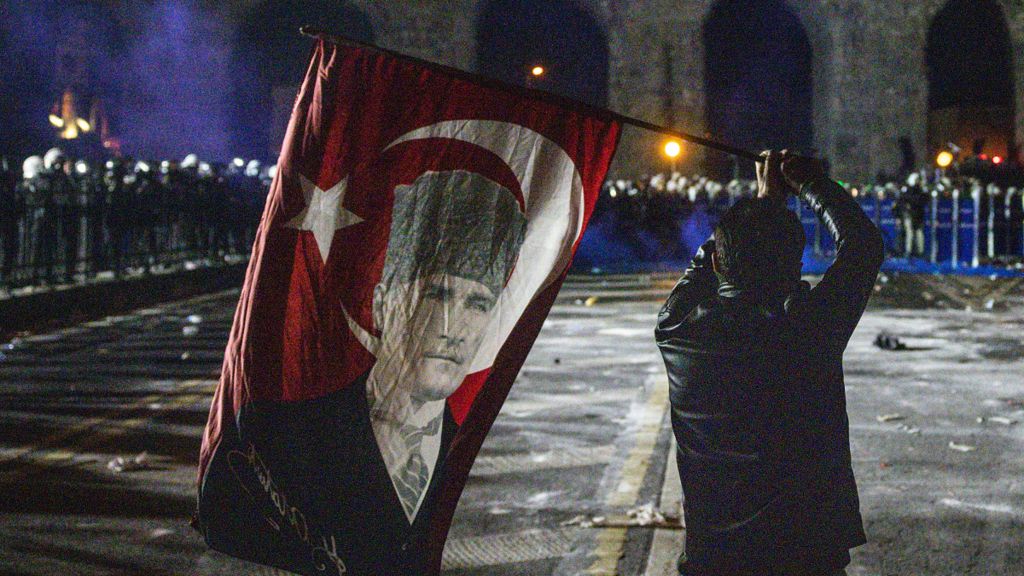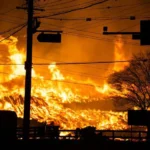
Massive protests have erupted across Turkey following the arrest of Istanbul mayor Ekrem Imamoglu, the main political rival to President Recep Tayyip Erdogan. These demonstrations, which began on March 19, represent the country’s worst unrest in over a decade.
Imamoglu was formally arrested on Sunday and charged with corruption-related offenses including “establishing a criminal organization” and taking bribes – allegations he denies. His arrest came just before he was due to be nominated as the presidential candidate for the secular Republican People’s Party (CHP). Despite his imprisonment, the CHP confirmed him as their candidate for the 2028 election through a symbolic vote.
The protests initially started small in Istanbul but quickly spread to dozens of cities nationwide. While largely peaceful, some demonstrations have seen police using tear gas and water cannons to disperse crowds. Over 1,100 people have been detained since the protests began, including at least 10 journalists covering the events.
University students have been at the forefront of the demonstrations, with many breaking through police barricades to march toward government buildings. Protesters chant “We are not scared, we won’t be silenced, we will not obey” – a common opposition slogan.
Many demonstrators see this as more than just about Imamoglu’s arrest. A 29-year-old voter named Ferhat told AFP: “Whenever there’s a strong opponent [to Erdogan], they are always jailed. There is a dictatorship in Turkey right now.”
President Erdogan has condemned the protests as “vandalism” and “street terror,” vowing his government would not “surrender” to such actions. Turkish authorities have banned public gatherings, though this hasn’t deterred protesters.
The government denies political motivation behind Imamoglu’s arrest, insisting Turkey’s judiciary is independent. Erdogan has accused the CHP party chairman of encouraging unrest.
Erdogan has held power for 22 years as both prime minister and president. Due to term limits, he cannot run again in 2028 unless constitutional changes are made. His supporters credit him with years of economic growth, while critics view him as an autocratic leader intolerant of dissent.
The European Commission has urged Turkey to “uphold democratic values” as both a Council of Europe member and EU candidate country.
The UK Foreign Office advises travelers to avoid all demonstrations in Turkey, noting that police have used water cannons and tear gas to disperse crowds.












Be the first to leave a comment